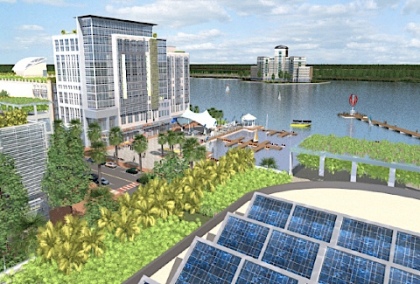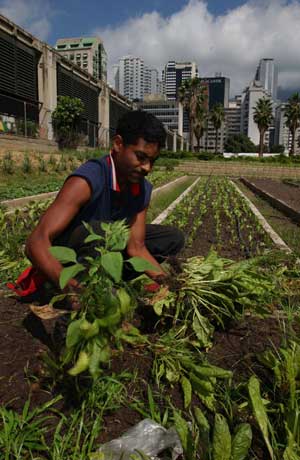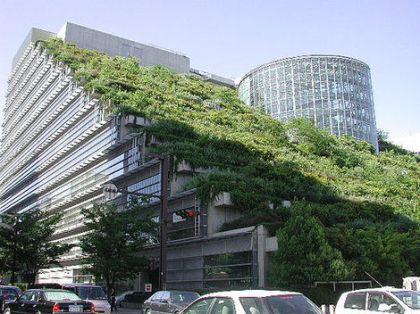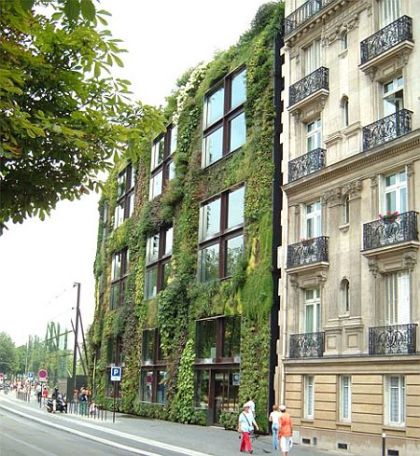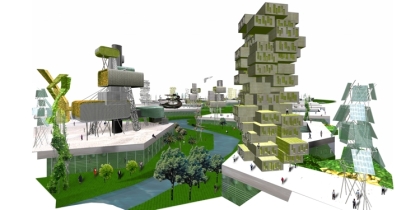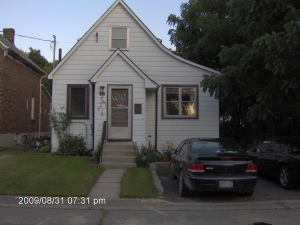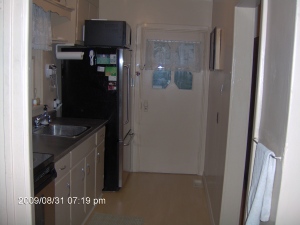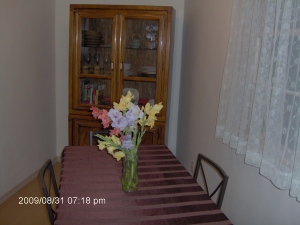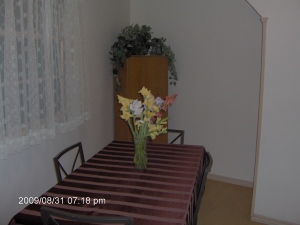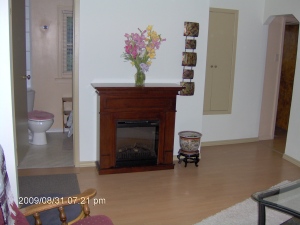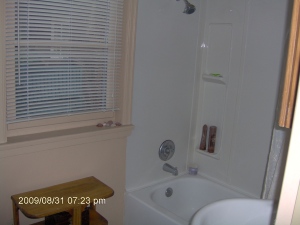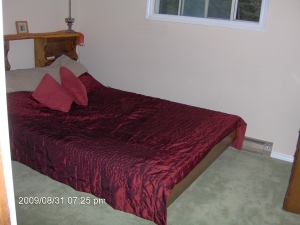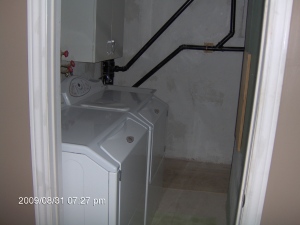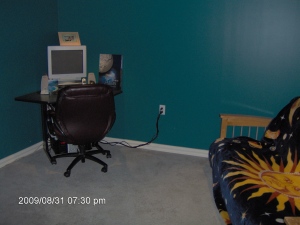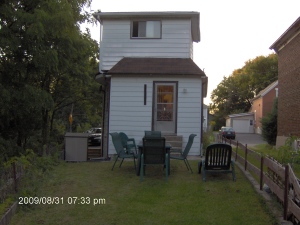Filed under: Rebecca Sargent, Uncategorized | Tags: auto repair Kitchener Waterloo, computer repair Kitchener Waterloo, good service K-W
Automotive repair:
I was referred to Christine’s by a good friend of mine who told me a lovely story of the service he had received here. When my old car needed new brakes, I called for an appointment. I was met with a friendly voice that was able to squeeze me in and help me almost immediately for my own safety. Christine was not only trustworthy (no unnecessary “fixes” or upcharges here), but extremely knowledgeable and caring.
Christines’s Automotive
38 Hanson Avenue, Unit 2 (just south of Homer Watson and Ottawa), Kitchener
Tel. 519-772-5044
Computer Repair:
All I can say is Notebook Galaxy. I love these guys! After bringing my broken laptop into three different shops and being told three different stories of what was wrong with it, then requesting work at one shop only to be told they don’t have to parts and I would have to purchase them myself separately, I finally found Notebook Galaxy. I walked in and it was crowded, but I was greeted immediately none-the-less with a friendly welcome and inquiry into my computer’s status. One man was sitting on a couch, a computer taken apart in front of him. The other man was multi-tasking and assisting three people at once behind the desk. I figured it would take a while, but I did not want to leave my computer at another place again. So I waited. To my surprise, they moved through the crowd quickly and efficiently and I was served within 5 minutes. The man on the couch quickly looked at my computer, made a few minor adjustments, and to my surprise, said “it’s fixed”. And it was. No insane prices or elaborate labour charges. Simple fixes, in front of your face. He also showed me how to maintain my computer, get free spyware, and other handy little tidbits that I still use. They have since been the only people I trust to touch my computer!
Notebook Galaxy
347 Weber Street North, Unit B (near the corner of Weber and Columbia), Waterloo
Tel. 519-886-1112
Filed under: Rebecca Sargent
Hello all!
I love this city, but sadly, I will be leaving it shortly!
I am heading to parts of West and Central Africa for the next two years to work and do research on the connections between the extraction of metals and violence which I will be writing on at my other blog A Peace of Conflict. During this time, I will not be available to help you with your real estate needs.
If you need real estate assistance, please contact my trusted friend Judita. She will gladly assist you with all your needs!
I will still occasionally be writing on one of my favorite topics, sustainability. Due to time constraints, this will not be regular. Judita will still be posting here on current real estate issues, so please watch for her upcoming posts.
Thanks to all my readers!
Rebecca
Filed under: Rebecca Sargent, Sustainability | Tags: earthship, Haiti, rebuiding, sustainable housing
This is the best idea I have seen for rebuilding Haiti so I have decided to pass it on in hopes that the organizers can reach their funding goals and provide the maximum assistance to those in need.
Those at Earthship Biotechture intend on teaching the people to build their own sustainable housing (earthship technologies) using locally found materials.
Currently the organizers are in need of:
– Camping food, Camping Gear
– Money
– Vaccines
– Connections with people and organizations in Haiti to partner with.
Please check out their website and pass this information on to everyone you can!
Thinking of those in Haiti. Our hearts and minds are with you.
Filed under: Rebecca Sargent, Sustainability | Tags: consumerism, environmentalism, Sustainability
Now you may be surprised to hear this, considering that I write a blog about sustainable housing, but I do not consider myself an environmentalist. I do not feel like I am one of the green, tree-hugging folk.
I do live what most would consider a fairly green and simple life. I haven’t really been shopping in a few years now, aside from groceries and the occasional need for office supplies for my business (mostly 100% recycled paper and re-filling the ink cartridges in my printer). I think very carefully before I make a purchase and try to research its impact whenever possible. My clothes are all second hand from the thrift store or handmade creations by friends. I live in a very minimum square footage, use all non-toxic cleaners (thank goodness for baking soda), and take great measures to reduce my daily energy usage. I grow some vegetables and herbs for the fresh goodies through the harvest and to preserve to last me as far as I can get through the winter. Aside from chocolate (which I can’t imagine ever giving up!), I try to eat mostly a localvore diet, although I’m not extremely strict on this. I dream of the day when I will be able to live in a fully self-sustaining home, off the grid, growing all my own food myself.
So why do I write about sustainable housing, and why do I seem to care about environmental issues so much?
I’ve always considered myself a fairly good person. It has never been my intention nor want to cause another being harm and I have always been concerned with human rights and freedoms. It is with this purpose that my so-called “environmentalism” came to be.
I was once a fairly heavy consumer. I desperately wanted the latest and greatest, and coveted these goodies with great lust. I dreamt of a high-tech, gadget-filled existence and thought the tree-huggers to be unrealistic idealists with their head in the clouds.
That all began to change– slowly, but surely–after extensive world travels and years at university studying about global affairs began to really open my eyes. I read (and write) constantly about human rights and have for at least most of the past decade. I dream of a day where the basic human rights (you know, like those ones agreed upon by many nations–including our own–through the Universal Declaration of Human Rights over 60 years ago) are actually ratified and guaranteed by the governments of the world. A world where everyone has the basics they need to live a healthy and happy existence.
For me, environmentalism coincides with this dream. Pollution, in my opinion, violates my human rights. It affects my health and well-being and the health and well-being of my family. I should not have to endure a barrage of toxins if I don’t want to do so willingly.
Unfortunately, we have little choice in the matter. Our air and water is filled with toxic pollution and it is only getting worse. In some places, people are experiencing severe health problems due to the high toxicity levels in the air, ground or water. Their right to a standard of living adequate for the health and well-being of themselves and their families is being infringed upon by polluters.
High levels of consumerism are having an immense impact on pollution levels. We live in a society where we are expected to shop. We are expected to have a home computer and a cell phone and a big screen TV. We are taught from a young age to value material things. Unfortunately, this value for the material happens to contradict with many people’s value of doing no harm. It was this contradiction that led to my gradual life change.
Not only does the need for the latest-and-greatest cause tremendous pollution, which will harm the planet and the beings living on it, but many of these latest-and-greatest are also incredibly human rights abusing in their production. Now, I’m not just talking about sweat-shops, even thought almost every store in North America probably has at least one product created by sweat-shop labour. The abuses go much deeper.
Think about where your products came from and what it took for them to get from raw materials in and on the ground to your home. They have probably traveled hundreds if not thousands of miles, creating mass amounts of pollution along the way only to wind up in a landfill at the end of it.
If the product has metal components, it is possible that this metal was mined by slaves and you would never even know it. It is quite possible that it also provided financing for a murderous warlord to continue warring. For example, you’d be hard-pressed to find an electronic product such as a cellphone or laptop computer that hasn’t helped in some way to finance civil war or helped to continue the rape, torture or death of innocent civilians.
It is with this in mind, that I began to look into what I was consuming, why I was consuming it and how it was impacting the world. It is with this in mind that I became an “accidental environmentalist”. I started searching out the sources of the products and services I was using daily and whenever I found one that didn’t meet my ethical standards– I stopped using it. As I stopped using all the products and services to such a high degree– I noticed that I didn’t need or miss them after they were gone for a while. As I started looking into environmental issues more and how they were affecting the people of this planet, I started reading about the different renewable and sustainable technologies that exist. I starting thinking– why aren’t we using these? They make so much sense, not only from an environmental standpoint, but they are also more cost effective and efficient.
Reversing or slowing climate change has never been a prime goal for me. Not infringing on other people’s human rights, however, IS.
The next time you think about going green, think about this. Probably the number one greenest thing you can do for this planet and the beings living on it is to STOP CONSUMING SO MUCH STUFF!!
Everything you consume had to be created. It had to use goods mined or extracted from the earth, causing pollution and depleting often non-renewable resources, and is perhaps even using slave labour or causing war and death along the way. When you throw it away at the end of its usage it will probably wind up in a landfill leaching into our water supplies. So think before you buy– do I actually need this? Chances are, you probably don’t, and after a while, you probably won’t even miss it.
Filed under: Rebecca Sargent, Sustainability | Tags: green building, green roof, green wall, smart growth, suburban sprawl, sustainable cities, sustainable housing, sustainable living
Anyone who knows me knows that I’ve been dreaming of building my own earthship on a large acreage (enough for a woodlot, orchard and gardens) for many years now. I think about this all the time and hopefully someday in the no-so-distant future it will become a reality. I love growing vegetables/gardening, and definitely love the idea of living in a home that can provide me with self-sustaining renewable supplies of food, energy and water.
I also have dreams of a more integrative city in the future. A city where green spaces collide with living spaces and buildings can “live” on their own. Buildings that can collect and store energy, collect and clean water, and even grow food for their occupants, not to mention help clean the air.
It doesn’t matter whether you believe climate change is “hype”– these types of building and designs make sense in many other ways. In a world where security is an issue and people are told to create “emergency preparedness kits” for their homes, it makes good sense to not have to rely on a grid that could be possibly unreliable. It also saves money, create oxygen and creates a more natural looking setting.
It makes good sense to have a way to feed cities within the cities. This ensures that in case of emergency there are still food sources available to the population. It’s also much, much cheaper to grow your own produce from seeds than buying it and it tastes so much better because it hasn’t ripened on a truck or sat in storage at some facility before being shipped. There are even services out there now in some cities that you can hire to come and tend your vegetable garden for you if you don’t want to grow them yourself. They can be grown on roofs, sidewalks, and any space big enough to hold a pot. The spaces on roofs and boulevards can also be rented out to others for them to grow produce or flowers.
It makes good sense to have energy available on a renewable individual basis without having to be attached to some massive grid. Again it’s cheaper– much, much, much cheaper. Installation costs can be returned on utility savings in short periods of time and if you are collecting enough energy, you never pay for utility costs again. You only have to worry about maintenance and replacing the systems every 15-25 years. Again– in the case of emergency– you still have power. Makes sense.
It makes good sense to have a way to clean and collect water. We all need water to live, and we use a LOT of it. There are many creative ways to reduce, collect, treat and clean water that have been converted to home use and could be done on a much larger scale. Reed bed waste water systems, for example, have very low operational costs compared to other types of waste treatment options because they use gravity for the main pumping instead of coal-burning fuel. They also look better from the outside, because instead of a massive treatment facility spewing out sludge there is only a space full of plants (creating more green space).
The city I imagine uses space wisely– more efficiently and thoughtfully. It integrates and maximizes spaces like the roofs and walls of buildings in innovative ways. It diversifies the usages of the land– combining retail space with business space, with residential space, with farm space, with industrial space, with recreational space, and making them all work together, reducing the need to travel for daily activities.
These types of initiatives are starting to happen all around us. The more we invest and use these types of systems– the better they will become. Ontario has started to implement Smart Growth policies in an attempt to redevelop the land to help prevent urban sprawl.
So let’s start creating energy, creating useful space and creating clean air instead of using energy, destroying useful space and polluting the air. It just makes sense!
Filed under: Rebecca Sargent, Sustainability | Tags: criticism, geothermal, solar, sustainable housing, sustainable living, sustainable technology, wind turbine
Sustainable technologies such as solar panels, wind turbines and geothermal heating are just really starting to take off. The more these type of technologies are used and become popular, the more efficient they can become, allowing different and new types of technology to emerge onto the marketplace.
There are criticisms of many of the systems and those who use them will surely tell you they are not without their flaws. Some of the first earthships created, for example, were designed in such a way that they produced excessive, unlivable amounts of heat. They had to be tweaked and perfected in such a way that would address the problems so that they could be livable. As a result, newer earthships are better designed and more comfortable to live in. They needed to be used, tested and tried to even discover what the real problems were to be able to even begin to address them.

Renewable energy and sustainable technology is really only at its infancy. We are just beginning to realize the true potentials and possibilities that are out there. The best is yet to come.
One of the biggest problems I see with many of the renewable energy technologies (such as solar, geothermal and wind turbines) being truly sustainable is the resources that they require in batteries or heavily mined materials to manufacture them. All batteries require mined metals and minerals that are non-renewable and incredibly waste intensive. Many of the technologies are also incredibly waste intensive during their manufacture, distribution or at the end of their lifecycle, as they wind up in landfills leaching toxins into the garbage soup that may eventually find its way into our groundwater.
Sustainable means thinking about the entire lifecycle of a product, not just how much energy it will save during its usage. How much energy went into its manufacture? How much waste was created? How far did it travel? Where will it go when its done being useful? Will it wind up in a landfill, or can it be recycled? I always like to add to this, was it created/distributed/disposed in a manner respectful of all human rights, because to me, this is also part of being truly sustainable. If a product was manufactured using slave labour or disposed of in a way that will toxify other human beings– it is definitely not sustainable.
So what’s best to use? Which technologies are best? How should we live our lives in the most sustainable way?
There’s no magic answer. Mostly, because the way the world is set up right now, it’s next to impossible to really find out the full details of every product you are using, even if you wanted to. The average product makes at least 10 stops along the way before it ever reaches our stores and we throw it away when its finished its use with little regard for where it will truly end up. This is not being sustainable. There are many great technologies out there waiting to come out and many companies trying to be as fully sustainable as possible, but unfortunately they are being shrouded by all the greenwashing that’s out there.
It’s time to stop greenwashing, and instead really focus on being truly sustainable. This won’t happen overnight, and will take some trial and error. It will take companies looking into the entire lifecycle of their products and finding ways to reduce their impact overall, people wanting to be more conscious and governments strong enough to make responsible legislation.
If you find faulty “green” claims out there or cases of greenwashing- you can report them under the Competition Act.
Filed under: Rebecca Sargent, Sustainability | Tags: community gardens, flowers, fruits, gardening, herbs, sustainable living, vegetables
Community gardens have become much more popular over the past couple of years and are popping up throughout the city. Community gardens are a great way to encourage an urban community’s food security, allowing people to come together to grow their own food and plants. Those without access to their own land have a chance to be connected to land; to grow their own crops. Community gardens can be done on a cooperative basis, or a person can rent a plot within a garden to tend to themselves. Community gardens help diversify the city and provide green space to be enjoyed.
There are many different community gardens that one can be part of within the Kitchener-Waterloo region. Here is a list of some that have spaces available.
| Community Gardens in Kitchener |
Backyard Plots to Share Sponsored by: Opportunities Waterloo Region Garden location: Highland Rd. & Mill St. area Garden size: No. of plots: 1 Plot size: ~ 5′ x 15′ Cost per person: Services provided: Open to: For information contact: Maxine Tel. 519-747-7404
Chandler-Mowat Community Garden Sponsored by: Chandler Mowat Community Centre Garden location: Chandler Park Garden size: 300 sq/ft No. of plots: 15 Plot size: Not Available Cost per person: Call for information Services provided: Land, water, use of garden shed, participation in gardening events for families, and educational activities Open to: Residents of surrounding neighbourhood This garden is located in a high density residential neighbourhood and serves many new Canadians. The garden grew to its present size in May, 1999, with support from the Food Bank of Waterloo Region, the City of Kitchener, and a partnership with the Chandler Mowat Community Centre. The City of Kitchener provided land in Chandler Park, the Home Depot donated a garden shed (2000), and Chandler Mowat Community Centre provides a free source of water. Garden activities include: garden opening and blessing, activities for children, picnics and meetings with gardeners. Upcoming events include: canning workshops, children’s programs, and a harvest celebration. For information contact: Tim and Kathy Elliott Chandler Mowat Community Centre 222 Chandler Drive Kitchener, ON N2E 3L7 Tel: 519-570-3610
City of Kitchener Allotment Garden Plots Sponsored by: The City of Kitchener Garden location: 1541 Fisher Hallman Road behind the Williamsburg Cemetery No. of Plots: 147 Plot size: 20′ x 20′; maximum 2 plots per family. Cost per season: $23.00 (including GST) Services provided: Land, tilling, fertilizing with compost, and water access Open to: Residents of the City of Kitchener This garden is located on land owned by the City of Kitchener. Plots are rented to gardeners each season. Gardeners may have the same plots every year. Gardeners are expected to plant by the end of May and keep plots free of weeds. For information contact: City of Kitchener 82 Chandler Drive, Kitchener ON N2E 1G6 Tel. 519-741-2557
Courtland-Shelley Community Garden Sponsored by: Courtland-Shelley Community Centre Garden location: Vanier Park Garden size: Not Available No. of plots: 20 Plot Size: 10′ x 10′ Cost per season: $ 10.00 Services provided: Land, garden tools, and water Open to: Residents of surrounding neighbourhood, primarily Courtland-Shelley townhouse residents This garden has real diversity with people from many different cultures. Learn about gardening and different cultural practices! For information contact: Doreen West-Gemmell Courtland-Shelley Community Centre 1064 Unit G Courtland E Kitchener, ON Tel. 519-571-7953 Fax 519-571-7591
Doon – Pioneer Park Community Garden Sponsored by: Doon-Pioneer Park Community Centre Garden location: 150 Pioneer Drive, Kitchener Garden size: Not Available No. of plots: 16 Plot size: Narrow pie shaped plot 22′ long Cost per season: $10.00 Services provided: City of Kitchener land, water tank, use of shed and tools Open to: Neighbourhood residents Doon Pioneer Park Community Garden offers 16 individual plots for organic food production. The garden was designed in the form of a wagon wheel with a medicine (herb) wheel in the centre to pay tribute to the native and pioneer heritage of the area. Flower gardens and some raspberry canes surround the fenced-in individual plots. A reclaimed barn-board shed holds tools and resource material for gardneres. Plots are planted individually, but the flower gardens and pathways are cared for communally. For information contact: Sandra Lachance Doon Neighbourhood Community Garden Tel. 519-748-4665 sdlachance@golden.net
Eden’s Gate Community Garden Sponsored by: Seventhday Adventurist Church Garden location: 235 Williamsburg Rd., Kitchener Garden size: 90′ x 70′ No. of plots: 36 Cost per season: Call for information Services provided: Land, water, use of garden shed Open to: Residents of surrounding neighbourhood and church members This garden is located in the middle of a residential neighbourhood and it is its first year to open. The City of Kitchener has helped with working up the garden area and giving some compost and top soil. There will also be a plot to supply St. John’s Kitchener with food, herbs and flowers. The sponsors are looking forward to meeting new people and gaining more knowledge. Garden activities include: opening of the garden and blessing it, meeting with gardeners, and Harvest Festival. For information contact: Natasha Gould Tel. 519-568-9153
George Lippert Community Garden Sponsored by: Mount Hope/Breithaupt Park Neighbourhood Association Garden location: This garden is located in George Lippert Park on Weber Street in Kitchener, between Louisa Street, Ahrens Street and Wilhelm Street. Garden size: 1,000 sq. ft. No. of plots: 10 Plot size: 10′ x 10′ Cost per season: $10.00 Service/equipment provided: Land and water Open to: Anyone interested in organic gardening, but especially residents in surrounding neighbourhoods. This garden is an initiative of the Mount Hope/Breithaupt Park Neighbourhood Association. It started in May 2002 with the support of the City of Kitchener, and a grant from the Waterloo Region Community Garden Network to cover the start-up costs. It is open to anyone interested in growing their own vegetables, herbs, and flowers. For information contact: Ann Voisin Tel. 519-578-8638; available evenings
Green Rural Opportunities for Waterloo Region (GROW Herbal Gardens) Sponsored by: The Working Centre Garden location: This garden is located on Kraft Drive and is the second driveway off Bloomingdale Road in Kitchener Garden size: 1.5 acres No. of plots: Single collective plot Cost: None Services provided: Land, water, seeds, tools, compost, shed, greenhouse, and training in gardening skills development GROW Herbal Gardens is a non-profit project that provides mental health consumer survivors with a garden of therapy and enterprise, and with the training and skills necessary to maintain it. Volunteers of the GROW garden produce organically grown herbs and quality herbal products to sell to the larger community. For more information contact: The Working Centre Misha Gingerich Tel. 519-749-9177 ext. 238 mishag@theworkingcentre.org
KW Urban Harvester
Sponsored by: Laurier Students’ Public Interest Research Group
Garden location: Throughout KW
Garden size: Varies from plot to plot
No. of plots: 10 and growing
Plot size: Varies
Cost per season: Free, though donations are welcome
Services provided: Land, garden tools, and water
Open to: All residents of KW, or visitors who just want to help out for a short time
Urban Harvester was started in the spring of 2006 by WLU Grad Kyla Cotton. It is a project dedicated to turning our urban landscape into something that is beautiful, sustainable, and of course edible. It was restarted in Spring 2008 with a plan to begin growing organic crops in any piece of urban soil we can legally use. We want to turn useless lawns and forgotten gardens in the Waterloo Region into bountiful sources of life and nutrition.
For information contact:
kwurbanharvester@gmail.com
http://kw-uh.wikidot.com/
http://www.facebook.com/group.php?gid=10563736723
| Community Gardens in Waterloo |
Beaver Creek Housing Co-op Community Garden Sponsored by: Beaver Creek Housing Co-op Garden location: Beaver Creek Housing Co-op Garden size: not available No. of plots: 20 plots for Beaver Creek Members Plot size: 5′ x 20′ (varies) Cost per season: none Services provided: land and water Open to: residents of the Housing Co-op This garden is a totally green, natural, and pesticide-free garden. Since 1983, this garden has been maintained in the co-operative spirit. The participants ensure their gardening practices have minimal impact on the environment. Gardeners grow perennials and vegetables using water efficient gardening methods and no pesticides. For information contact: Kathy Middleton Beaver Creek Housing Co-op 590 Bearinger Road, Unit #7B, Waterloo, ON N2L 6C4 Tel. 519-886-1081
Brighton Yards Co-operative Housing Community Garden Sponsored by: Brighton Yards Housing Co-op Garden location: Brighton Yards Housing Co-op Garden size: Not Available No.of plots: 10 Plot size: 10′ x 10′ Cost per season: None Services provided Land and water Open to Plots are only available to residents of the Housing Co-op. This garden was started in May 1997 with the purpose of giving co-op members the opportunity to grow food, create a beautiful and social space, and contribute to the co-operative spirit of the housing co-op. For information contact: Brighton Yards Housing Co-operative Tel. 519-886-9242
Christ Lutheran Community Garden Sponsored by: Christ Lutheran Church Garden location: Next to the church, 445 Anndale, Waterloo Garden size: Not Available No. of plots: 35 – some raised bed plots Plot size: Not Available Cost per person: $10.00 Services provided: Land and water Open to: Surrounding neighbours A great garden with lots of sunshine! Location is very accessible with great diversity in gardeners – friendly people with a wealth of garden information. This garden was established in May 1999 with support from the Food Bank of Waterloo Region, a Waterloo Region 25th Anniversary Community Grant, and the City of Waterloo (land preparation and water hook-up). Gardeners include members of the Church, Food Bank garden referrals, and neighbours. For information contact: Christ Lutheran Church Jeanette Nelson or Shirley Freeman 445 Anndale, Waterloo Tel. 519-885-4050
Lutherwood Garden Club Father David Baur Drive 519-884-8485
McDougall Road Garden Sponsored by: Private Citizen Garden location: 52 McDougall Road, Waterloo Garden size: 70′ x 30′ No. of plots: 9 plots Plot size: 5′ x 28′ Cost per person: $20/yr (mainly to pay for water) Services provided: Compost, wood chips and delivery charges paid by owner Open to: 14 gardeners – some gardeners share plots For information contact: Andrew Copp Tel. 519-725-2993
The Good Earth Garden Call after April 4, 2008. Sponsored by: St. John’s Evangelical Lutheran Church Garden location: Behind St. John’s Evangelical Lutheran Church Garden size: Not Available No. of plots: 90 Plot size: 10′ x 12′ – some gardeners may have two plots Cost per season: $10.00 Services provided: This garden has its own garden tools and shed Open to: Neighbourhood residents A lovely organic garden with an old fashion water pump. The garden is nestled beside a grand shade tree an has both sun and shade. Gardeners can relax at the picnic table on the side. This peaceful garden was started in May 1999 by local residents, the church and the Food Bank of Waterloo Region. The City of Waterloo helped to prepare the land. For information contact: James Graham St. John’s Evangelical Lutheran Church 22 Willow Street Waterloo, ON N2J 1V5 Tel. 519-888-0561
The University of Waterloo Community Garden Sponsored by: Land donated for use by the University of Waterloo, Waterloo Environmental Studies Endowment Fund
Garden located: University of Waterloo; North of Westmount North past Columbia Lake
Garden size: Not Available
No. of plots: 10
Plot size: 10′ x 10′
Cost per season: None
Services provided: Land and water
Open to: Members of the UW Community
Two garden styles exist. One garden is run with individual garden plots with shared tasks; while the other garden operates as one large communal garden where members garden together.
For information about individual garden plots contact:
Jason Rochon
University of Waterloo
Tel. 519-888-4567 ex.t 33518
For information about the communal garden contact:
Candace Wormsbecker
Tel. 519-886-4185
cwormsbe@gmail.com Veghouse Community Garden 55 Euclid Aven mattheppler@gmail.com
| Community Gardens in Cambridge |
Christopher Champlain Cultivating Community Garden (CCCG)Sponsored by: Christopher Champlain Community Centre Garden Location: Percy Hill (where McDonald meets Champlain behind 125 Champlain Blvd) No. of plots: 10 Plot Size: 5′ x 20′ (negotiable) Cost per family: $5.00 Services provided: Resources, water, and initial roto-tilling Open to: The Public These garden plots are new, tilled with fresh soil in the spring of 2008. Although CCCG is still in its birthing stage, native plants have been planted to keep it true to the area. It is planned to have benches available by the end of the season allowing for residents, young and old, to walk and enjoy the progress of this garden. Planting with CCCG allowed many residents to come out mingle with each other and produce some wonderful fresh vegetables for those summer meals. Look for future information on canning, preserving etc… For information contact: Lisa Koop Tel: 519-624-3855 ext 227 or Paula Johnstone 519-740-8565
| The UW School of Architecture Community Gardens |
| Sponsored by: Land donated for use by the City of Cambridge Garden location: Directly south of School of Architecture building, beside the Grand River Garden size: Triangular plot of land, approximately 1250 sq ft No. of plots: One – the garden is communal Cost per season: None Services provided: Land and water Open to: Students of the School of Architecture, and any interested community membersThis garden was initially designed and implemented in 2007 through a graduate course at the School of Architecture. Open to both the school and the surrounding community, the garden has become a successful public space where members of the school and community alike come together to share and learn. The garden currently has several beds of perennial flowers, herbs and some fruit, while the majority of plots are left open for annual edible plantings every year. The garden is currently run communally, however if members of the school and/or outside community are interested, plots could also be gardened individually. The project is still in its early stages and any support is appreciated. All gardeners, donations and wisdom are welcome! For information contact: Melodie Coneybeare Waterloo Regional Police Garden Allotment Program |
Tel. 519-653-7700 ext. 2299
| Community Gardens in Other Parts of the Region |
Diversity Gardens Location: This garden in located on Notre Dame Drive, between Petersburg and St. Agatha along a Hydro Services Corridor. Garden Size: 2 acres Number of plots: Not applicable Open: Diversity Gardens is open for self guided tours and workshops from the middle of May to the middle of October Cost: Some workshops have a small cost. Other events are free. Upcoming events are posted at: www.cogwaterloo.ca Diversity Gardens is a project of the Canadian Organic Growers – a national charity promoting organic growing. The gardens provide hands on training in growing ornamentals, vegetables, fruits, and herbs using orgnic techniques. Located along one of the Region’s environmentally sensitive planning areas (the St. Agatha forest), the garden provides an ideal place to demonstrate the inter-relationships between food and the environment. The site has a series of demonstration gardens, greenhouse, native shrub border, and an outdoor workshop area. On workshop days and when volunteers are at the garden there is access to a demonstration kitchen, a wild crafting studio and washroom facilities. For information contact: Krista Long kristalong@sympatico.ca
For general information about Community Gardens, please contact: Carol Popovic Tel. 519-883-2004 ext. 5336 plcarol@region.waterloo.on.ca



